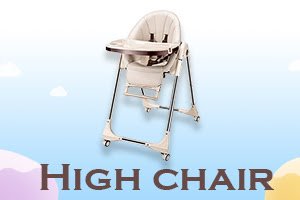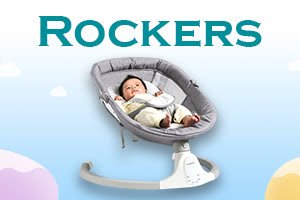Dehydration in Children and Babies

Parents are frequently concerned that their children are dehydrated. However, if your child is crying and fleeing as you try to change the diaper and call the doctor, you don’t need to worry about dehydration just yet! Urine output and activity level are two of the most reliable measures of hydration status in children.
Children’s Dehydration
In medicine, we use a child’s “ins and outs” to evaluate if they are dehydrated. The fluids that go in and out of the body are measured as ins and outs (also known as “Input and Output” or “I’s and O’s”). Food and drinks provide the majority of the fluids consumed by otherwise healthy youngsters. Pee, poop, and perspiration are the most common fluids that leave the body.
In order for the body to maintain proper fluid balance, we want the ins and outs to be equal. When the output surpasses the input, dehydration ensues. In other words, more water is ejected from the body than is absorbed.
- Dehydration in Children: What Causes It?
- When fluids are lost through one or more of the body systems, the most common causes of dehydration in children include:
- Diarrhea and/or vomiting are symptoms of the gastrointestinal tract.
- Fever, burns, heavy perspiration, or bleeding can cause fluid loss through the skin.
- Urine – Medical conditions such as diabetes or certain drugs might cause a youngster to urinate more frequently than normal.
- Children are more likely than adults to become dehydrated for several reasons:
Viruses commonly cause vomiting and diarrhoea, and children are more susceptible to them than adults. This is because they are exposed to everything for the first time and frequently share what they have put in their mouths with other children.
Because children have a larger body surface area (skin) to body mass index (BMI) ratio and a greater base metabolic rate, they shed more water through their skin than adults.
The water content of a child’s body is higher than that of an adult’s. Children’s bodies contain 65-70 percent water, while adults’ bodies contain closer to 60%.
Babies and little children may not be able to communicate their thirst to the adults who care for them.
As a result, we know that children are more likely than adults to get dehydrated. However, not all cases of dehydration are the same. Dehydration is defined as mild, moderate, or severe based on the amount of net water loss.
Dehydration in Children’s Symptoms
Mild dehydration in children can cause no or little symptoms. Here are a few things to keep an eye out for:
Urination frequency and colour Mild dehydration might be detected if your child pees less frequently than usual or if the urine is darker than usual. Urine should have a light golden hue to it.
- Mouth is rather dry.
- Thirst has increased.
- As dehydration advances from mild to moderate to severe, the following signs and symptoms may appear:
- Lips that are cracked or have an extremely dry mouth.
- When the youngster screams, there are no tears.
- The child appears to be bored or irritable.
- Children that are verbal may complain of feeling dizzy or light-headed, as well as having a fast heartbeat.
- The following are more severe indications of dehydration:
Not merely a fatigued youngster or one who has less energy than normal, but lethargy. True lethargy occurs when a youngster does not respond to your voice or touch, is unable to stand or move, or can only grunt and moan.
People suffering from severe dehydration may find it difficult to breathe or perhaps pass out.
A baby’s “sunken fontanel” is a common source of concern for new parents. New parents, obviously, are on the lookout for this because newborns are unable to communicate how they are feeling or what is going on. Yes, when a baby is dehydrated, the fontanel on top of their skull may appear or feel caved in. However, this is a later indicator of dehydration in babies who aren’t feeding, urinating, or functioning normally, or who are vomiting or experiencing diarrhoea. This isn’t an uncommon occurrence, and it’s generally not the first thing that comes to mind. Yes, always consult your doctor if you’re concerned, but don’t panic if this is the only issue you discover in your otherwise healthy baby.
When Should You Contact Your Doctor?
It’s better to call the doctor and get your child seen if you’re concerned your youngster is dehydrated. They can search for signs that your child is dehydrated and, if so, how serious the dehydration is. It’s also a good idea to contact if your child:
Is your newborn baby between the ages of birth and three months old, and you’re concerned about their eating, urinating, vomiting, diarrhoea, fever, or activity level?
- I haven’t been able to drink anything for several hours.
- Blood is present in the vomit or diarrhoea.
- If you have diarrhoea that lasts more than a few days, you should see a doctor.
- Has a round of vomiting that lasts more than a day.
- Has a fever or extreme pain, as well as nausea and/or diarrhoea.
- In older children, it’s been 6 to 8 hours since they last urinated; in younger children, it’s been 4 to 6 hours.
If you bring your child to the doctor, they will examine vital indicators such as blood pressure, heart rate, breathing rate, and oxygen level. They’ll check the child’s pulses, skin, and mucous membranes, and examine him or her from head to toe. They may also perform a urine and/or blood test.
Dehydration is treated.
Treatment is determined by the severity of dehydration as well as your child’s age. It isn’t simply treated by adding additional water to the equation. It must have the proper proportions of water and other electrolytes found in your body, such as salt. As a result, it’s advisable to consult your child’s doctor and follow his or her advice.
Breast milk, formula, or special oral dehydration treatments can be used to treat mild dehydration. In the hospital, more severe dehydration may necessitate intravenous (IV) fluids.
Dehydration is frequently detected early and treated readily in resource-rich countries, which is good. If you are concerned that your kid is becoming dehydrated, consult with your child’s doctor as soon as possible so that you can spot it early and intervene accordingly.

























Leave a Reply
View Comments